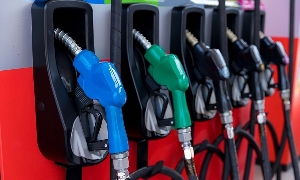Nigeria’s inflation rate could reverse from the current trend in September due to the magnitude of the price hike, analysts said in a discussion with MarketForces Africa.
In a separate chat with financial experts, MarketForces Africa gathered that the fact that fuel is fundamental to every economic activities could re-direct inflation trajectory as the effects filter into business.
“...petrol pump price increment by the Nigerian National Petroleum Corporation Limited will halt disinflation,” an email note from LSintelligence Associates stated.
Last week, the Nigerian National Petroleum Corporation Limited hiked the retail pump price of fuel at a time when oil prices are falling in the global commodities market.
Market prices of basic goods have increased as logistic costs spiked. Some companies that depend heavily are expected to see an increase in exposure that would require a high working capital requirement amidst a higher interest rate.
It is believed that a higher price for fuel would raise all market variable costs and force consumer goods companies to increase prices. After subsidies were removed last year, the Nigerian petrol price has increased drastically.
Market prices of food and other basic daily needs have been adjusted across markets. Other services providers are also raising fee to cover for petrol-backed business activities.
Surprisingly, pump price has been steady at N650-N700 despite fluctuation in the global market before Dangote refinery comes upstream.
The NNPCL and Dangote Refinery lack of consensus on market price signal uncertainties for the citizens with positive expectation over local refining activities.
Experts have maintained consensus that Dangote Refinery gives Nigerians hope for the future except the ongoing tough politics over crude supply and post refining pricing issue. In style, Nigeria has returned to an era of paying subsidy on petrol product given that the landing costs has surpassed pump price.
In the global commodities, prices of crude oil ended the week on a bearish note. Brent fell to $72 per barrel while US benchmark West Texas Intermediate has fallen below $70 at the weekend.
“Nigeria is paying the equivalent of $1 per barrel to downstream oil sector players to use fuel,” analysts said, quoting the latest exchange rate in the forex market.
The National Bureau of Statistics reported that inflationary pressures in Nigeria eased for the first time in 29 months, with the headline inflation rate dropping to 33.40% in July 2024, down from 34.20% in June.
Analysts said the decline in the consumer price index was due to the high base effect and the Central Bank’s interest rate hike. Inflation remains high compared to the 24.08% recorded in July 2023.
Analysts said in a report that the CBN’s inflation-targeting measures, including raising interest rates to 26.75%, helped to moderate inflation, alongside federal government initiatives such as suspending import duties and VAT on key food items and inputs for manufacturing.
However, those efforts could be lost as fuel hike is expected to force logistics service providers to raise prices.
In the latest consumer report, the food index, which plays a major role in the headline figure, eased to 39.53% in July from 40.87% in June. However, core inflation, which excludes volatile items, edged up slightly to 27.47%, driven by rising energy costs, higher transport prices, and increased rents.
Nigeria’s economy strengthened by 3.19% in the second quarter of 2024, driven by the non-oil sector. Despite facing high price pressures, global dynamics, and rising interest rates, and local currency depreciation, the non-oil sector, particularly financial institutions and telecommunications, played a significant role in sustaining growth.
The economy has now grown for 15 consecutive quarters, Cowry Asset Limited said in a report. The services sector was the largest contributor to growth, expanding by 3.79% year-on-year and accounting for 58.8% of GDP.
Key sectors such as telecommunications, financial institutions, real estate, construction, and broadcasting services posted positive growth. The agriculture sector grew modestly by 1.41%, while the industrial sector expanded by 3.53%, showing improvement from previous contractions.
The oil sector’s real growth jumped to 10.15% year-on-year, rebounding from a -13.43% contraction in the corresponding quarter of 2023.
Business News of Monday, 9 September 2024
Source: dmarketforces.com













